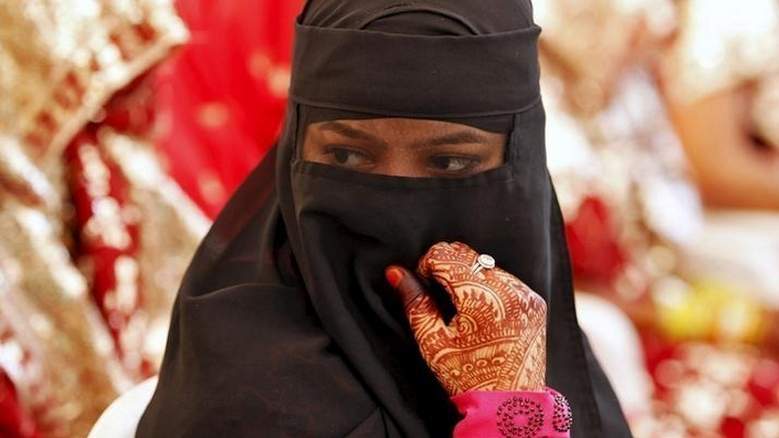Can woman be given option to say no to triple talaq: Supreme Court
03:40PM Wed 17 May, 2017

The bench asked whether it was possible for the AIMPLB to do that and whether their advisory would be followed by the Qazis at the ground.
IANS|May 17, 2017
New Delhi - The Supreme Court on Wednesday asked the All India Muslim Personal Law Board if it was possible to give the woman the option, before she gives her consent to nikaah, that the marriage she was entering into would not be dissolved through instant triple talaq.
The top court constitution bench headed by Chief Justice Jagdish Singh Khehar suggested that a clause can be added on the Nikaah Nama to say that the marriage can't be dissolved by the husband by pronouncing instant triple talaq. The bench asked whether it was possible for the AIMPLB to do that and whether their advisory would be followed by the Qazis at the ground. You can incorporate this option in the Nikaah Nama before she gives consent to Nikaah to say no to triple talaq, Chief Justice Khehar asked the AIMPLB. Responding to the suggestion, Senior counsel Yusuf Hatim Muchchala said that the advisory of the AIMPLB is not binding on the Qazis to follow on the ground. However, Muchchala, who is also a member of the Executive Committee of the AIMPLB, referred to the recent resolution passed by the AIMPLB conclave at Lucknow wherein the Board has asked the community to boycott the men who take recourse to instant triple talaq to dissolved their marriages. The conclave took place on April 14, 2017. He told the bench that they would consider the suggestion in all humility and would look at it. The suggestion to AIMPLB by the court came in the course of the hearing of a batch of petitions challenging the constitutional validity of triple talaq. AIMPLB, has in the course of its submissions while saying that triple talaq was permissible, described it as a "sin" and "undesirable". The AIMPLB has said that the community needed time to change and reform itself on its own without any outside interference or dictate.










